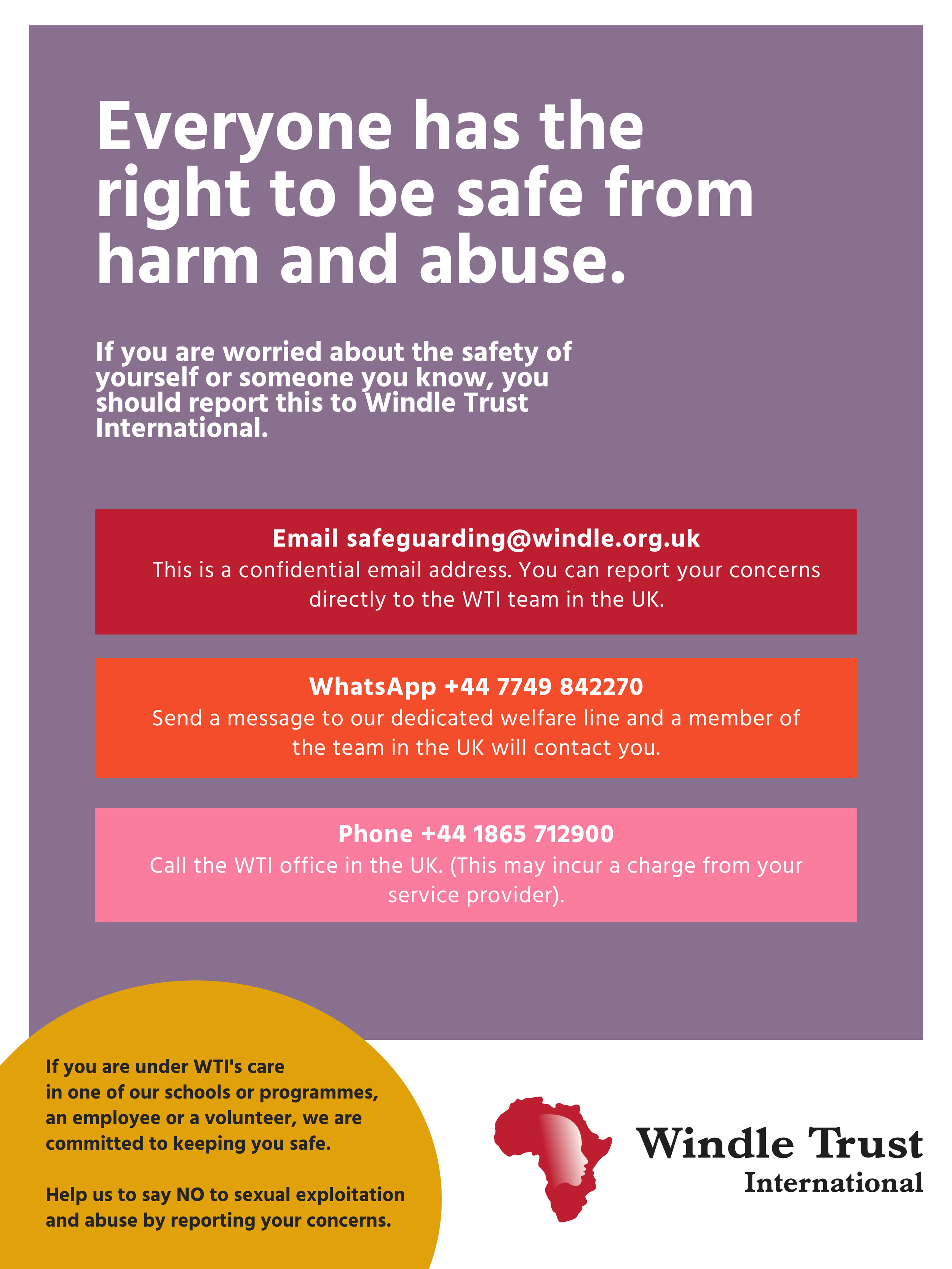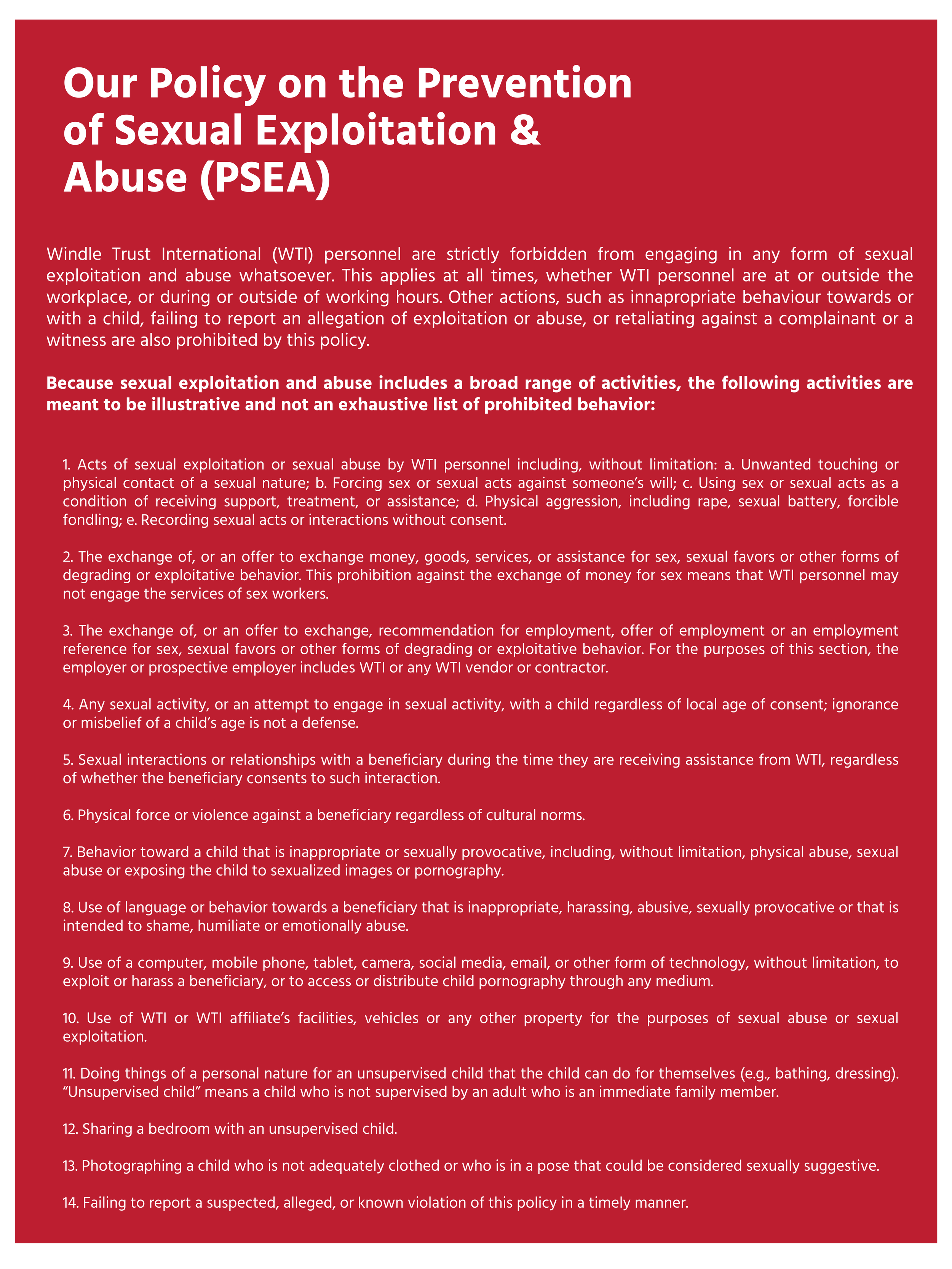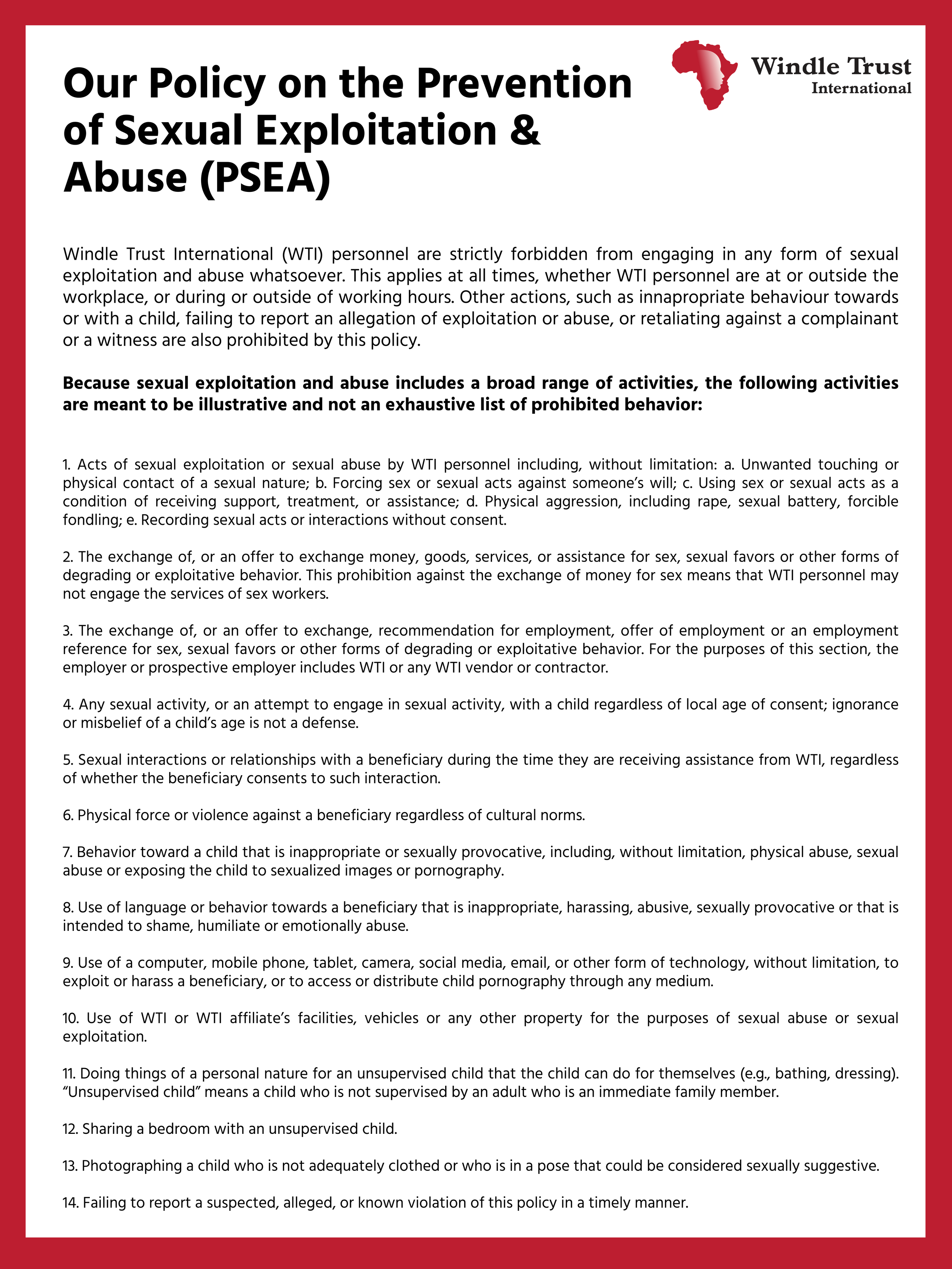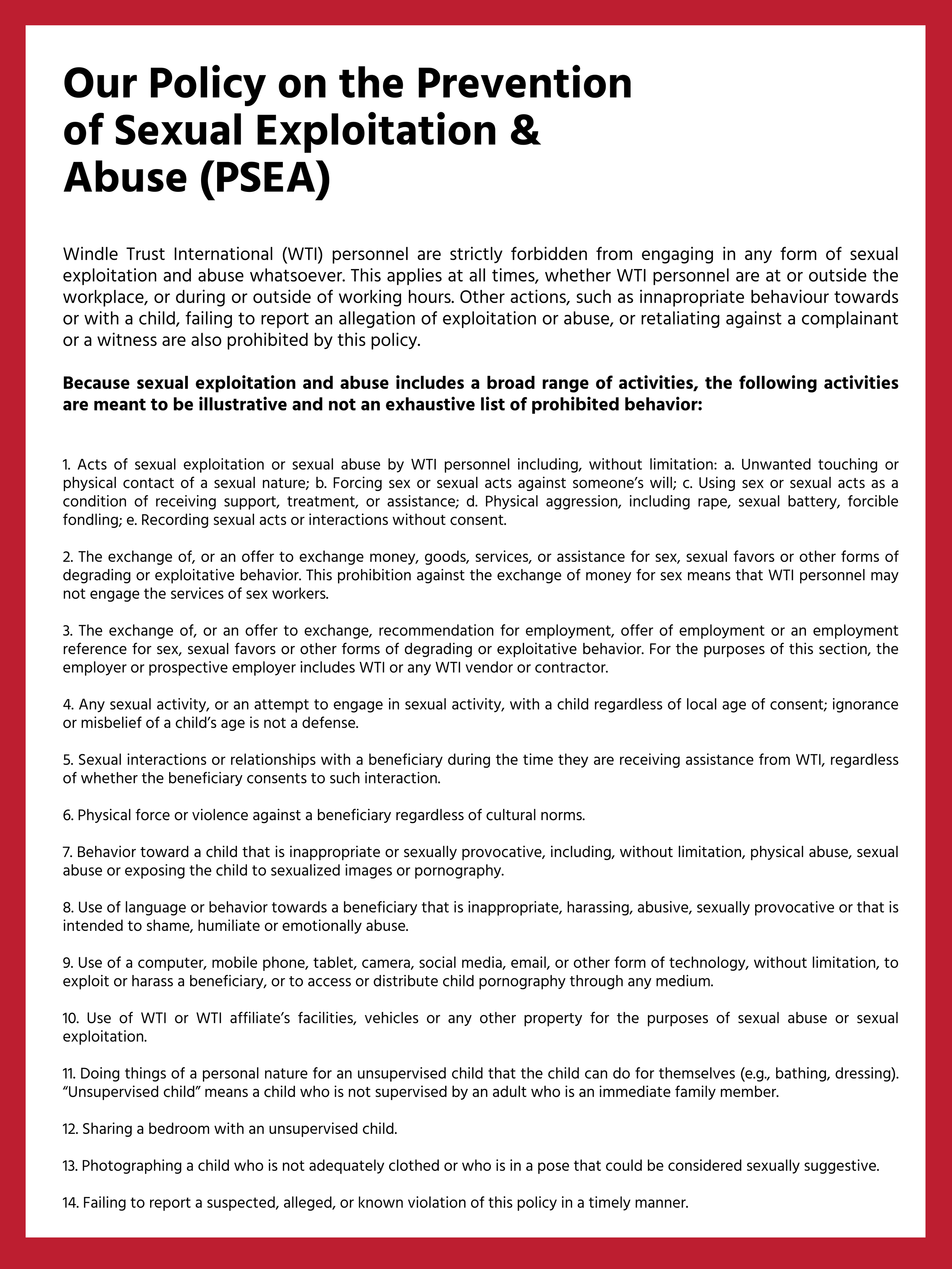Safeguarding is not a dirty word: NGOs need to talk about it, not hide from it
NGOs, charities, and humanitarian agencies that work in fragile states and conflict zones almost universally operate on the principle that they’re benefitting the people and societies with whom they work. Without careful management, accountability, and the maintenance of strict professional standards however, there is a real risk that organisations also bring harm, particularly when it comes to safeguarding individuals.
In September 2022 a joint investigation by Al-Jazeera and the New Humanitarian reported that accounts of sexual abuse at a UN-run refugee camp in South Sudan are both increasing and remaining unmanaged, despite widespread knowledge of numerous incidents. The report goes as far as citing residents’ claims that “sexual exploitation, mostly perpetrated by humanitarian workers, was being experienced ‘on a daily basis’” and catalogues a multitude of devastating safeguarding failures resulting from systemic deficiency and missed opportunities by the UN and NGOs.
Safeguarding is extremely important in development and humanitarian contexts because it helps to ensure that assistance is provided in a way that is respectful of the rights and dignity of the people they are intended to benefit. This includes protecting people from harm, abuse, and exploitation, and promoting their well-being. It is especially important in contexts where people may be vulnerable due to poverty, conflict, or displacement. Therefore, safeguarding must be central to planning, policy, implementation, and monitoring by all NGOs. Windle Trust International believes that NGOs and institutions should be openly sharing best practices and learning from each other to improve on safeguarding across the sector as a whole. We need to be open to learning from others and from past mistakes and be constantly seeking opportunities to better protect those we serve. Hiding from failures and protecting staff and organisational reputations before victims must be condemned and eradicated if the safeguarding crisis as reported in South Sudan is to improve.
“The people sexually exploiting and abusing women are the very people meant to serve and protect them; their entire lives depend on services from these same aid workers”
At Windle Trust International safeguarding training is conducted for beneficiaries as well as staff and trustees. This helps them to identify areas for concern and what they can do about it. In November 2022 Scholarship recipients in Khartoum received their certificates on completion of their training.
At Windle Trust International the Trustees and senior management take our responsibility to those we support extremely seriously. Some of our core principles and safeguarding best practices include:
Supporting and protecting victims: In all actions concerning safeguarding, the best interests of the victim are the primary consideration. The rights of victims and potential future victims take precedence over a desire to protect our organisational reputation. Our organisational response is driven by integrity and the imperative to do the right thing.
Establishing and adhering to clear policies and procedures for safeguarding: We maintain publicly available policies on Safeguarding, Prevention of Sexual Exploitation and Abuse, Whistleblowing and a Code of Conduct signed by and adhered to by all staff, Trustees, volunteers and consultants. These policies are reviewed regularly by the Board of Trustees and frequent training sessions for staff are conducted.
Being proactive, rather than reactive: We take a proactive approach to the investigation of safeguarding matters rather than waiting for reports to be received. We expect our staff to be investigating, collecting information, monitoring behaviours, and speaking with beneficiaries on a regular and consistent basis. These are collated by management and reported back to the Board of Trustees as a standing item on every trustee meeting agenda.
Providing training to staff and beneficiaries: This can help to raise awareness about safeguarding issues and ensure that staff and beneficiaries know how to report concerns or incidents. From September to December 2022, we trained a total of 273 staff, beneficiaries and government officials in both Sudan and South Sudan. This included a 5-day training course for 133 scholarship recipients in Khartoum where topics such as “how to detect sexual misconduct, harassment, exploitation, and any unacceptable behaviour” and “how to safely report any cases of safeguarding concerns to WTI” were covered.
Nominating safeguarding focal persons: Whilst safeguarding is everyone’s job, we have a Safeguarding Adviser based in Juba and nominated safeguarding focal persons from staff to trustee level operating across the UK, Sudan and South Sudan. WTI safeguarding focal persons can be identified through our staff page on our website.
Establishing partnerships with local organizations and communities: This can help to ensure that development and humanitarian initiatives are implemented in a way that is sensitive to local needs and cultural context, and that they have the support and buy-in of the communities they are intended to benefit. At Windle Trust International we have recruited and trained safeguarding focal persons within the community that support our planning and implementation. For example, in Yambio and Aweil we have recruited 28 “School Mothers” to support WTI in detection and reporting of abuse and help us to integrate initiatives within the community. We also ensure that all partner organisations involved in the implementation of projects have appropriate safeguarding measures in place.
Being transparent and accountable: This means being open and responsive to concerns or incidents and being willing to take corrective action when needed. We have defined investigation and disciplinary procedures and report all safeguarding incidents and concerns to the Charity Commission in the UK as well as to our partners around the world. Windle Trust International takes a zero tolerance approach to abuse and exploitation.
Ensuring ease, knowledge, and confidentiality of reporting: Safeguarding concerns can be reported in confidence to the WTI head office in the UK via email, telephone or Whatsapp. These communication channels are manned by the administrative team and forwarded confidentially to the appropriate personnel to ensure that swift and effective action can be taken whenever necessary. Safeguarding information, including how to access the safeguarding hotlines, is displayed on posters in all venues where Windle staff work.
By prioritising safeguarding and making it central to our work we believe that development and humanitarian organisations such as Windle Trust International can help to build trust and confidence in the sector. We must ensure that interventions have a positive impact on the lives of the people we serve and that everyone is protected with respect and dignity. Normalising safeguarding conversations is the first step to doing that.




Article by Alex Bent - Based in our Oxford office, Alex is a WTI Programme Manager. He manages the Postgraduate Programme as well as the relationships with many of our UK and European based partners.

